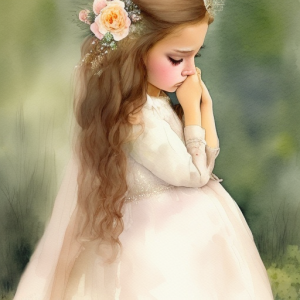End of Child Marriage
The Legal Age of Marriage in England and Wales raised to 18
‘The end of child marriage is a victory against child abuse”
Child marriage
This is a violation of basic human rights and is considered a form of abuse that robs children of their freedom to choose and access to education.
It has been estimated that 12 million girls are married before the age of 18 every year.
This practice can have severe consequences on their physical and mental health, their education, and furthermore their future prospects.
Child marriage perpetuates poverty
Also, inequality as young girls who marry young are often forced to leave school and become financially dependent on their husbands.
In advocating for the criminalisation of child marriage in England and Wales
Aneeta Prem MBE JP, the founder of Freedom Charity, has been a vocal advocate. Her relentless work, together with her team, has been instrumental in the passing of the Marriage and Civil Partnership (Minimum Age) Act. This raises the legal age of marriage to 18 and criminalises the act of forcing a child into marriage even in non-legally binding ceremonies.
The new law is a significant step forward in the fight against forced and child marriage.
Why it is important to End Child Marriage?
Child marriage is a widespread practice in many parts of the world. It violates the basic human rights of children. Furthermore, it robs children of their freedom to choose and access to education, perpetuating poverty and inequality. Child marriage also has severe consequences on their physical and mental health, their education, and future prospects.
Moreover, child marriage can lead to physical and emotional abuse, rape, and even murder.
Young girls who marry young are often forced to leave school and become financially dependent on their husbands. This can lead to a vicious cycle of poverty and limited opportunities for future generations.

Ending child marriage
We must end child marriage to protect vulnerable children from abuse and ensure their access to education and opportunities to make choices about their lives. This is a fundamental human right that must be upheld.
The Role of Freedom Charity in the Fight Against Child Marriage
Freedom Charity has been at the forefront of the battle against forced and child marriage in England and Wales. Through their tireless campaigning and advocacy work they have raised awareness of the risks of these practices and provided support to victims of forced marriage.
The efforts of Freedom Charity, along with others, have contributed to the passing of the Marriage and Civil Partnership (Minimum Age) Act, which raises the legal age of marriage to 18 and criminalises the act of forcing a child into marriage, even in non-legally binding ceremonies.
Despite this progress, their work is far from done. Freedom Charity will continue to work with young people, parents, schools, and communities. To raise awareness of the risks of forced marriage and provide support to victims of this form of abuse.
Alongside this they also lobby for legislative changes in other countries where child marriage is still legal.
Aneeta Prem states
According to Aneeta Prem, forced marriage is a severe form of abuse that has lasting effects on its victims.
It denies children their basic human rights and the freedom to make choices about their lives.
The risks of exploitation, abuse, and even murder are all too real for those who are subjected to forced marriage.
That is why Freedom Charity has worked hard to bring about End of Child Marriage legislative change, and Aneeta is delighted that the law has now been changed.
The new law raises the legal age of marriage in England and Wales to 18. It is now a criminal offence to cause a child to marry, even in non-legally binding ‘traditional’ ceremonies.
This means that vulnerable children will be better protected from the risks of forced marriage, and those who exploit them will be punished severely.
“I am proud of the work that we have done to bring about this change,” Aneeta Prem said “but there is still much more to do.”
We will continue to work with young people, parents, schools, and communities to raise awareness about the risks of forced marriage and provide support to victims of this form of abuse.
We will also continue to campaign for legislative change, in other countries where child marriage is still legal.
Together, we can make a real difference in the lives of vulnerable children and protect their basic human rights.”

